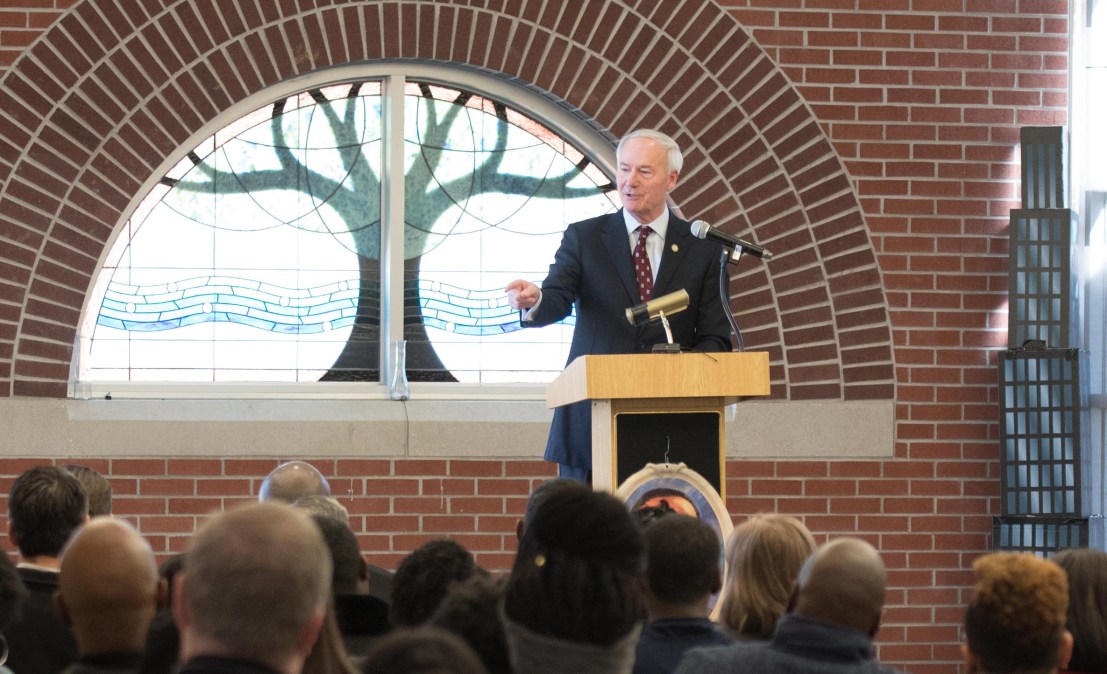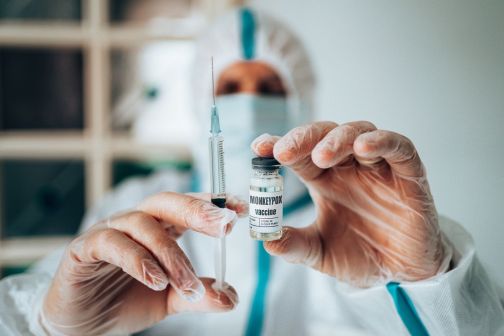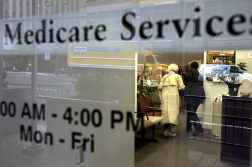Arkansas governor creates board to review COVID-19 tracing tech

Arkansas Gov. Asa Hutchinson on Friday announced the creation of an 12-member panel tasked with reviewing technologies that the state may use in developing a contact-tracing program to track the spread of the coronavirus. The COVID-19 Technical Advisory Board includes officials from the state departments of Health and Information Systems, other statewide agencies and the University of Arkansas.
The board will be led by Austin Porter III, the deputy chief science officer for the Arkansas Department of Health. The Department of Information Systems is being represented by Adita Karkera, the deputy chief data officer; Jennifer Davis, the chief privacy officer; and Nolan Leatherwood, the acting state chief information security officer.
“Two of the most critical tools in our ongoing efforts to stop COVID-19 are testing and finding those who have had contact with someone who is sick or who has tested positive,” Hutchinson said in a press release. “The technology for those tasks is changing rapidly. This advisory board will review options to ensure that we are employing the best tools that will allow us to quickly mitigate the spread of the coronavirus.”
Arkansas has recorded 5,775 cases of COVID-19, with 115 fatalities, and the coronavirus is continuing to spread throughout the state, especially in its northwestern corner. Arkansas recorded its biggest single-day increase in new cases Thursday with 261 confirmed infections.
While every state has started to loosen its restrictions on human movement and gatherings since the pandemic began, Hutchinson is one of a handful of governors who never issued a statewide stay-at-home order, and also blocked local governments from setting lockdown orders of their own.
Building out a modern disease-tracing system is a complex process that involves both hiring personnel to interview COVID-19 patients about who they’ve come into contact with, and reviewing a growing list of new technologies to notify people if they need to get tested for the illness.
The Arkansas Department of Health says it’s hired 200 contact tracers so far to cover the state of 3 million, with a goal of recruiting as many as 350. But like most states, Arkansas may find itself short-staffed, according to the National Association of County and City Health Officials, which recommends at least 30 contact tracers for every 100,000 residents. According to NPR, just six states and the District of Columbia have met or are on track to the NACCHO benchmark.
States’ contact-tracing programs can draw from a wide array of digital apps and platforms to boost their efforts, though many are still untested. A handful of states have already announced they intend to develop mobile apps for their residents that run on a new API developed jointly by Google and Apple that uses Bluetooth technology to inform users if they’ve been exposed to someone with the virus. Several states are also using workflow software developed by Salesforce and Amazon.
But with the federal government offloading responsibility for tracking COVID-19 to the states, they will also need to figure out how to make their individual programs interoperable, especially as people begin to commute and travel again.
“All states are in various stages of identifying and implementing the technology,” Mona Bector, a deputy commissioner in the Virginia Department of Public Health, told StateScoop last week. “If the neighboring states have the Google/Apple API and so does [Virginia], then there will be a consistent API being used in the back-end of the app for continuity in tracing people.”
Back in Arkansas, officials did not say if they are looking at any specific technologies to support contact-tracing efforts.
“We are currently investigating all innovative strategies for conducting contact tracing,” said Danyelle McNeill, a spokeswoman for the Arkansas Department of Health.






